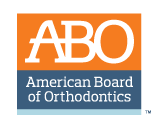February 27th, 2025
When does an underbite need surgery? The short answer is: when Dr. Joseph Gregg and our team recommend surgery as the best way to give you a healthy, functional bite. But let’s take a longer look, and see just why your doctors might come to that conclusion. First, what exactly is an underbite? In a…
Continue Reading
February 19th, 2025
Here is some surprising yet worthwhile advice you might be hearing for the first time: Brushing after a meal can be incredibly bad for your teeth if you do it after eating certain foods. Enamel is an extremely hard mineral on the exterior of each of your teeth. It’s actually the hardest substance in the…
Continue Reading
February 12th, 2025
Valentine’s Day is best known as a celebration of love in all its forms. Pink hearts, red roses, and cute greeting cards adorn every surface you see. What many people don’t realize is that the modern Valentine’s Day celebration arose from a religious holiday. St. Valentine’s Day was originally celebrated as a religious feast day…
Continue Reading
February 5th, 2025
Clear aligners like Invisalign® have become increasingly popular over the past several years and rightly so. They’re removable, easier to clean than braces, and hardly anyone knows you're wearing them. They are great in treating many cases, but they aren't for everyone. Below, Dr. Joseph Gregg and our team cover some of the instances where…
Continue Reading





